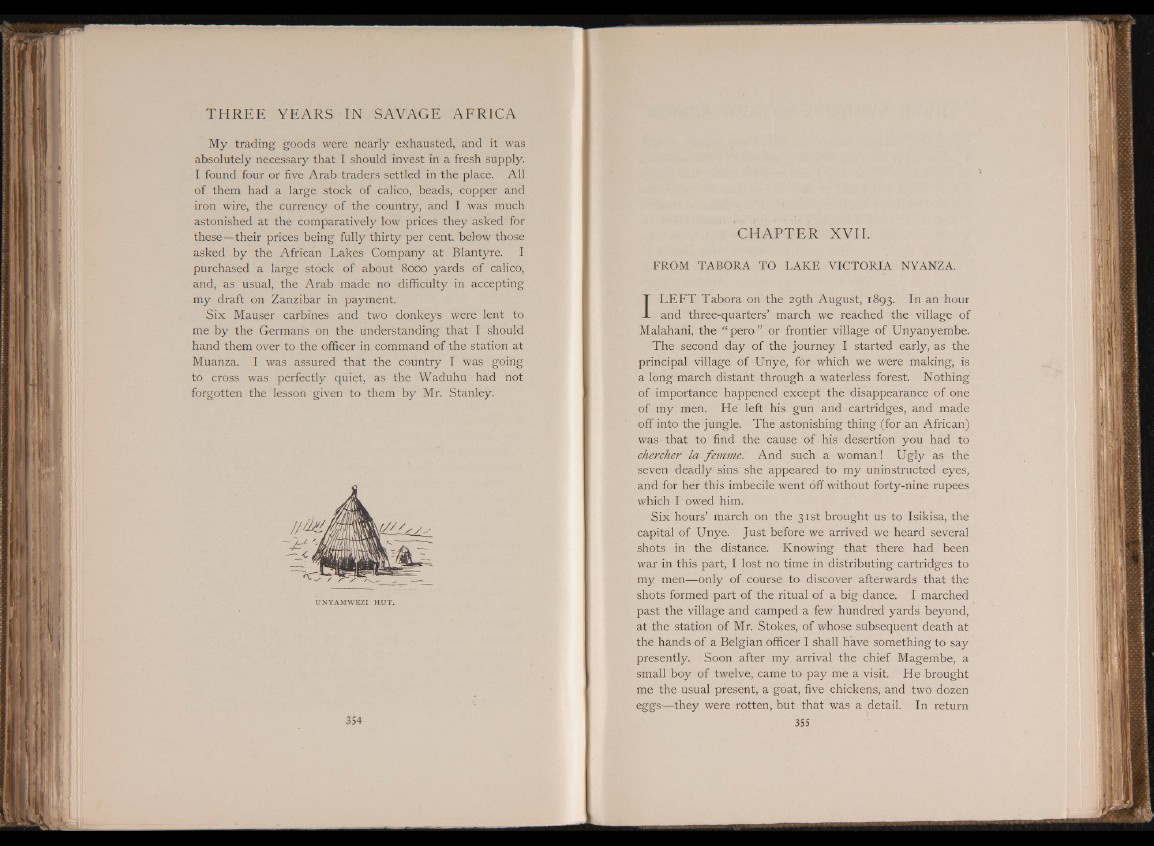
My trading goods were nearly exhausted, and it was
absolutely necessary that I should invest in a fresh supply.
I found four or five Arab traders settled in the place. All
of them had a large stock of calico, beads, copper and
iron wire, the currency of the country, and I was much
astonished at the comparatively low prices they asked for
these—their prices being fully thirty per cent, below those
asked by the African Lakes Company at Blantyre. I
purchased a large stock of about 8000 yards of calico,
and, as usual, the Arab made no difficulty in accepting
my draft on Zanzibar in payment.
Six Mauser carbines and two donkeys were lent to
me by the Germans on the understanding that I should
hand them over to the officer in command of the station at
Muanza. I was assured that the country I was going
to cross was perfectly quiet, as the Waduhu had not
forgotten the lesson given to them by Mr. Stanley.
C H A P T E R XVI I .
F R O M T A B O R A TO L A K E V IC T O R IA N Y A N Z A .
I L E FT Tabora on the 29th August, 1893. In an hour
and three-quarters’ march we reached the village of
Malahani, the “ pero” or frontier village of Unyanyembe.
The second day of the journey I started early, as the
principal village of Unye, for which we were making, is
a long march distant through a waterless forest. Nothing
of importance happened except the disappearance of one
of my men. He left his gun and cartridges, and made
off into the jungle. The astonishing thing (for an African)
was that to find the cause of his desertion you had to
chercher la femme. And such a woman! Ugly as the
seven deadly sins she appeared to my uninstructed eyes,
and for her this imbecile went off without forty-nine rupees
which I owed him.
Six hours’ march on the 31st brought us to Isikisa, the
capital of Unye. Just before we arrived we heard several
shots in the distance. Knowing that there had been
war in this part, I lost no time in distributing cartridges to
my men—only of course to discover afterwards that the
shots formed part of the ritual of a big dance. I marched
past the village and camped a few hundred yards beyond,
at the station of Mr. Stokes, of whose subsequent death at
the hands of a Belgian officer I shall have something to say
presently. Soon after my arrival the chief Magembe, a
small boy of twelve, came to pay me a visit. He brought
me the usual present, a goat, five chickens, and two dozen
eggs—they were rotten, but that was a detail. In return
355